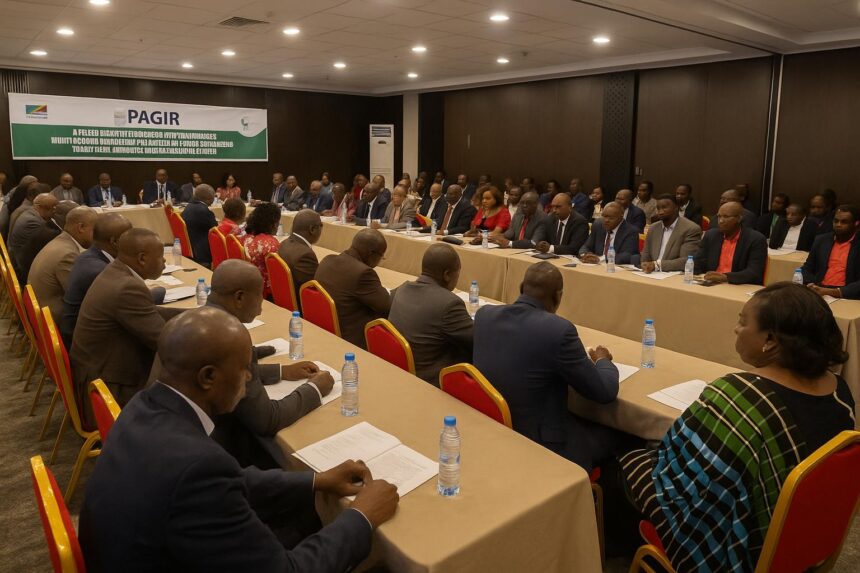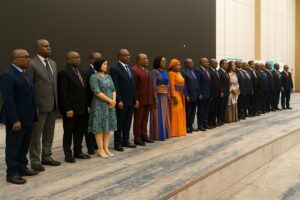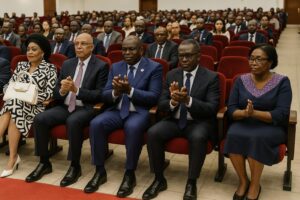Brazzaville Workshop Highlights Momentum
In late August, senior Congolese officials, procurement specialists and multilateral partners converged in Brazzaville to review a new performance matrix for the national public-procurement system. The exercise, led by the Accelerated Governance and Institutional Reforms Program, signals a calibrated push toward more transparent fiscal management.
Hosted with technical guidance from the Public Procurement Regulatory Authority and logistical support from the World Bank, the two-day workshop placed Congo-Brazzaville among the first Central African states aligning domestic procedures with the updated Methodology for Assessing Procurement Systems, widely known by its English acronym MAPS.
Officials insist the review phase is neither cosmetic nor externally imposed; rather, it responds to a presidential directive that all spending instruments reflect best practice, safeguarding scarce public funds while sustaining confidence among bilateral creditors and private investors navigating a global environment of heightened due-diligence requirements.
Four-Pillar Matrix as Compass
The matrix eventually validated by participants rests on four interconnected pillars: the legislative and policy framework; the institutional architecture and managerial capacity; the conduct of procurement operations; and the cross-cutting principles of accountability, integrity and transparency that determine public perception as well as audit outcomes.
Each pillar contains granular indicators, from competition thresholds to contract-execution reports, creating what one World Bank adviser described as a ‘living dashboard’ capable of flagging delays or irregularities in real time, thus giving line ministries empirical evidence before corrective recommendations reach Cabinet level.
By endorsing the structure, Congo’s authorities move closer to a harmonized toolkit that regional infrastructure financiers already employ in Cameroon and Côte d’Ivoire, suggesting potential spill-over benefits in cross-border projects linked to the Economic Community of Central African States transport master plan.
Strategic Weight of MAPS Benchmark
MAPS, initially launched by the OECD and now hosted by an international secretariat in Paris, functions as the dominant yardstick for gauging how well countries translate procurement rules into measurable savings and service-delivery gains, a dimension closely watched by credit-rating agencies and export-credit insurers.
Congo-Brazzaville seeks to complete a full MAPS diagnostic before the end of 2024, officials confirm, thereby enabling a public-facing action plan that prioritizes legislative updates, electronic tender platforms and capacity-building modules for provincial authorities, who still manage a significant share of capital spending.
The government’s timeline dovetails with a US$100-million budget-support envelope under negotiation with the World Bank, according to people familiar with the talks, reinforcing the perception that streamlined procurement is emerging as a de facto performance trigger in Congo’s wider development-financing matrix.
Governance and Investor Confidence
Private-sector voices welcome the initiative yet urge vigilance during implementation. ‘Rules alone cannot curb discretion; data must be published,’ argues Jean-Benoît Goma, head of a Brazzaville construction consortium, who points to delayed payments as a recurring obstacle despite otherwise competitive bidding rounds.
International observers are equally measured. A European Union diplomat stationed in Libreville notes that ‘credible procurement systems often become the hinge on which debt-relief discussions turn’, citing Zambia’s recent experience. For Congo, consummating MAPS could therefore shape negotiations once the G20 Common Framework debate revives.
Transparency groups inside Congo, while broadly supportive, request that civil-society representatives be embedded in evaluation teams, mirroring practices in Ghana and Senegal. Officials say the suggestion is under review, emphasizing the government’s preference for a consensus-driven pathway rather than an adversarial auditing posture.
Implementation Path and Future Missions
The pilot phase will test e-procurement modules within the ministries of Health, Public Works and Hydrocarbons, sectors selected for their fiscal weight and exposure to multinational contractors. Performance dashboards will be hosted on government servers, with quarterly snapshots scheduled for release through the official gazette.
Capacity-building remains a parallel priority. The National School of Administration is drafting a short course on procurement analytics, developed with the African Development Bank Institute, so that provincial accountants can interpret red-flag indicators without relying solely on external consultants, an issue spotlighted in previous audits.
Digitalization is expected to deliver savings of up to two percentage points of GDP over the medium term, according to preliminary simulations by the Ministry of Finance. Those gains would complement ongoing tax-revenue mobilization efforts embedded in the current three-year National Development Plan.
Success, however, will hinge on sustained political backing. For now, the presence of presidential envoys at the Brazzaville workshop conveys that high-level commitment is intact, offering a window for technocrats to translate diagnostic charts into contractual clauses that reassure taxpayers and potential foreign partners alike.
Multilateral financiers plan a follow-up mission in November to fine-tune baseline datasets and agree on verification protocols, a step described by one IMF economist as ‘crucial for insulating benchmarks from shifting calendars’.
Stakeholders left Brazzaville conscious that procurement reform is iterative rather than event-driven. Yet the consensus emerging from the workshop suggests that Congo-Brazzaville is positioning itself as a regional standard-setter instead of a laggard.






















